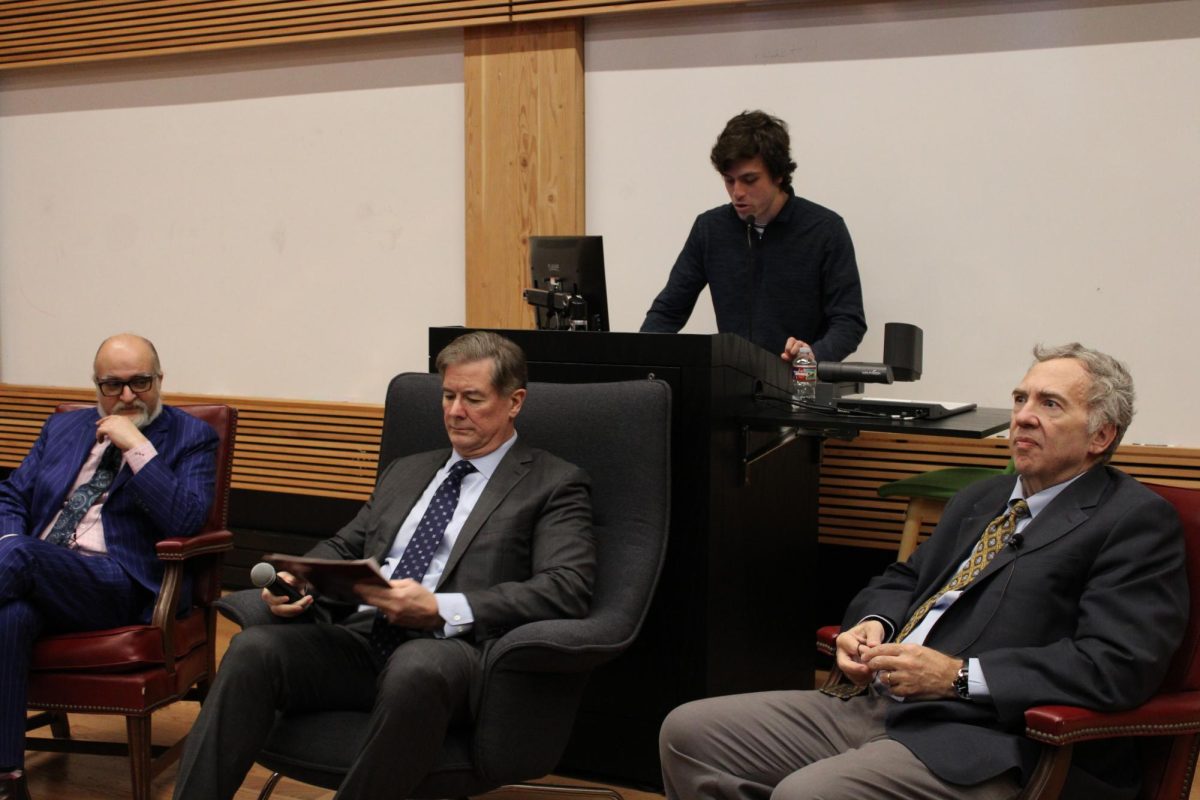As a follow up to my article last week, where I interviewed a DACA recipient in San Antonio, this week I take a deeper look into what and why this is something pertinent to the Trinity community.
The DACA program allows Dreamers to apply for work permits, study in school and be protected from deportation. Eligibility is only for those who arrived to the US before the age of 16, and were younger than 31 before June 15, 2012. To be accepted into the program, applicants must be currently in or graduated from school or be honorably discharged from the armed forces and have no felonies or significant misdemeanors. All of this must be proven through extensive documentation, which costs more than $600, including lawyer fees. Needless to say, the 800,000 DACA beneficiaries are clearly not “˜bad hombres.’ This also means that students who are recipients of the DACA are in the hands of our current legislators, and they may not be allowed to continue to work or study if a solution is not found by March 5, 2018.
The controversy which surrounds the program stems in part from the fact that it was an executive order issued by Obama in 2012. This makes the protection fickle, as it can be denied by any president at any time “” as made obvious by Trump’s decision. But, Obama created the DACA protection after two separate occasions of Congress having the chance to pass solutions for the Dreamers by way of immigration reform. What’s to say they will find a solution now? I worry about what will happen in the next six months.
In just five years, 90 percent of DACA recipients are employed, 72 percent are in school and many juggle both. Do they sound like moochers to you? Plenty of other not-quite-truths remain in the media swamp.
“Do you think that an illegal immigrant getting money is going to be paying taxes?” said President Donald Trump during a 2015 interview. “Sure, some probably do, only because employers are insisting on it. But there’s very little, percentage wise. There’s very little. Probably five percent, 10 percent. It’s a very small amount [who] pay taxes.”
The undocumented pay taxes, even though they are ineligible for Social Security, food stamps and vouchers. According to the Institute on Taxation and Economic Policy, the number of immigrants who pay taxes is closer to 75 percent. Immigrants are issued an identification number that allows them to file income taxes without a Social Security number, though a common bit of misinformation is that they steal Social Security numbers. A third of these undocumented immigrants are homeowners, according to the institute, subjecting them to property taxes just like anyone else “” which covers the cost for education. At least we let them get the education they already pay for.
In an interview in 2013, Stephen Goss, the chief actuary of the Social Security Administration, said that earnings by unauthorized immigrants result in a net positive effect on Social Security financial status generally, and that this effect contributed roughly $12 billion to the cash flow of the program for 2010. 2010 is the most current estimate for summation of payroll taxes from undocumented tax filings “” estimated at $13 billion. Who knows what that number ballooned to after the DACA?
Did you know, that when so-called “˜illegal immigrants’ die in our front lines, they are still only “eligible for posthumous citizenship”? So USCIS – you are telling me that non-citizens who fight and die for this country are not guaranteed citizenship? I am disgusted. Dreamers, even with DACA, are also ineligible to vote.
Many speculations fly about the real reason behind this assault on DACA, politically. “Trump is playing a tricky and dangerous political game. If I had to guess, he intends to condition his support of any congressional DACA replacement on the inclusion of funding for the construction of a wall on the southern border,” said William Mosley-Jensen, assistant professor of human communication and director of debate. This is effectively using the lives of 800,000 young immigrants as a bargaining chip.
“They bring a renewed sense of belief in our original dreams,” said Christine Drennon, associate professor of sociology and anthropology and director of urban studies. Immigrants of any kind-DACA or not-come to this country because they believe in the American Dream; they are the literal embodiment of its tenants: making a life from nothing. Immigrants choose a life of struggle here, living on the edges of a country that seems to be blind to their struggle, value, and humanity.






